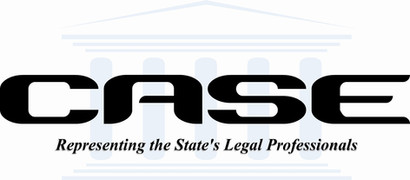
On March 30, 2017, CASE filed a legal argument with the California Supreme Court asserting that Proposition 66 requires that CASE members’ salaries be raised.
Proposition 66, as approved by California voters last November, seeks to shorten the time taken for legal challenges to death sentences. However, opponents challenged Proposition 66 on several grounds and the California Supreme Court has stayed the new law while it resolves these legal challenges. (Briggs v. Brown, No. S238309.)
CASE’s argument–which was raised as an Amicus Curiae (friend to the Court) in the Briggs case is, “Somewhat unusual because it supports neither side,” said CASE President Peter Flores, Jr, “CASE does not argue for or against Proposition 66 because CASE members seek justice in death-penalty cases from both sides of the legal aisle.”
Out of the more than 90 different state agencies and departments that employ CASE members, Flores said at least two–the Office of the State Public Defender and the Department of Justice–work on the death-penalty cases that could be directly affected by Proposition 66. Flores added, “Our public defenders seek to protect the legal rights and lives of the inmates, while our prosecutors enforce the laws while speaking for the victims of the most serious crimes.”
If and when the California Supreme Court determines that Proposition 66 is lawful, the new legal mandates would require that the CASE members who work on death-penalty cases receive a salary boost of 15% to 20%, depending on experience level, according to CASE General Counsel Patrick J. Whalen. “Once in effect, the increased duties and shorter deadlines created by Proposition 66 mean that it would be necessary to raise the salaries of the CASE members working on these sensitive cases,” Whalen said. “Otherwise, there would be fewer attorneys willing to perform the work, which would be completely counterproductive and contrary to the express goals of Proposition 66.”
CASE’s brief also argued that the pay of all Unit 2 lawyers must be raised to equal the increase given to CASE members under Proposition 66 because of state laws that equalize pay for those with comparable duties and responsibilities.
Information regarding Briggs v. Brown may be found here:
http://appellatecases.courtinfo.ca.gov/search/case/dockets.cfm?dist=0&doc_id=2169445&doc_no=S238309

